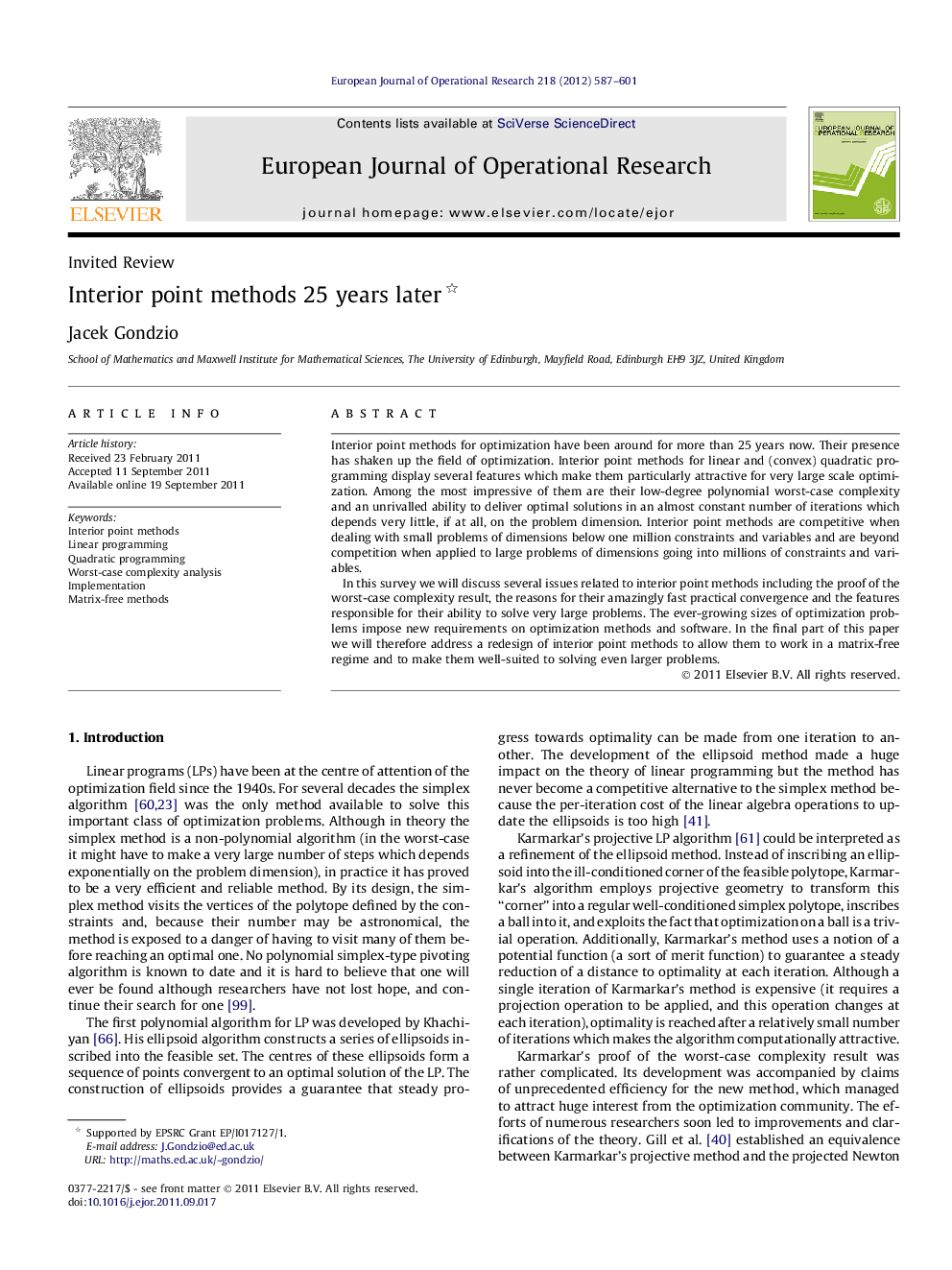| کد مقاله | کد نشریه | سال انتشار | مقاله انگلیسی | نسخه تمام متن |
|---|---|---|---|---|
| 478387 | 1446081 | 2012 | 15 صفحه PDF | دانلود رایگان |

Interior point methods for optimization have been around for more than 25 years now. Their presence has shaken up the field of optimization. Interior point methods for linear and (convex) quadratic programming display several features which make them particularly attractive for very large scale optimization. Among the most impressive of them are their low-degree polynomial worst-case complexity and an unrivalled ability to deliver optimal solutions in an almost constant number of iterations which depends very little, if at all, on the problem dimension. Interior point methods are competitive when dealing with small problems of dimensions below one million constraints and variables and are beyond competition when applied to large problems of dimensions going into millions of constraints and variables.In this survey we will discuss several issues related to interior point methods including the proof of the worst-case complexity result, the reasons for their amazingly fast practical convergence and the features responsible for their ability to solve very large problems. The ever-growing sizes of optimization problems impose new requirements on optimization methods and software. In the final part of this paper we will therefore address a redesign of interior point methods to allow them to work in a matrix-free regime and to make them well-suited to solving even larger problems.
► We survey the key advances in interior point methods over the last 25 years.
► We provide the proof of polynomial worst-case complexity of IPM.
► We address the computational issues of IPMs.
► We discuss the most recent advances including matrix-free version of IPM.
Journal: European Journal of Operational Research - Volume 218, Issue 3, 1 May 2012, Pages 587–601